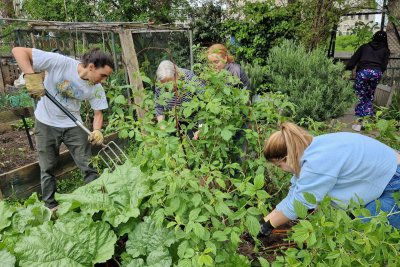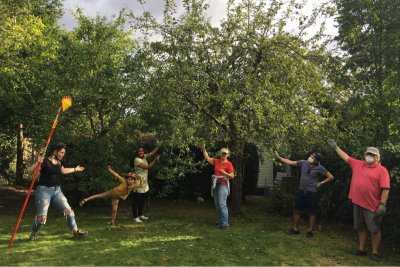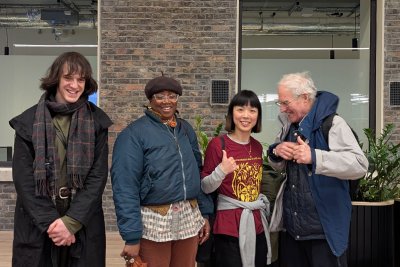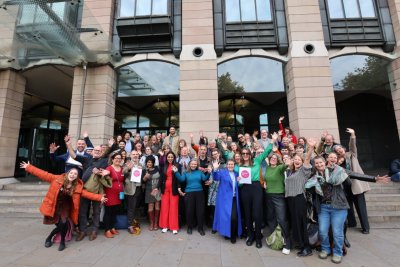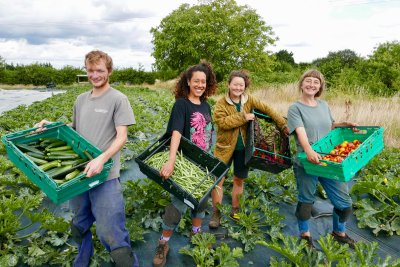 Growers harvesting organic produce at Sutton Community Farm, South London. Credit: Sutton Community Farm
Growers harvesting organic produce at Sutton Community Farm, South London. Credit: Sutton Community Farm
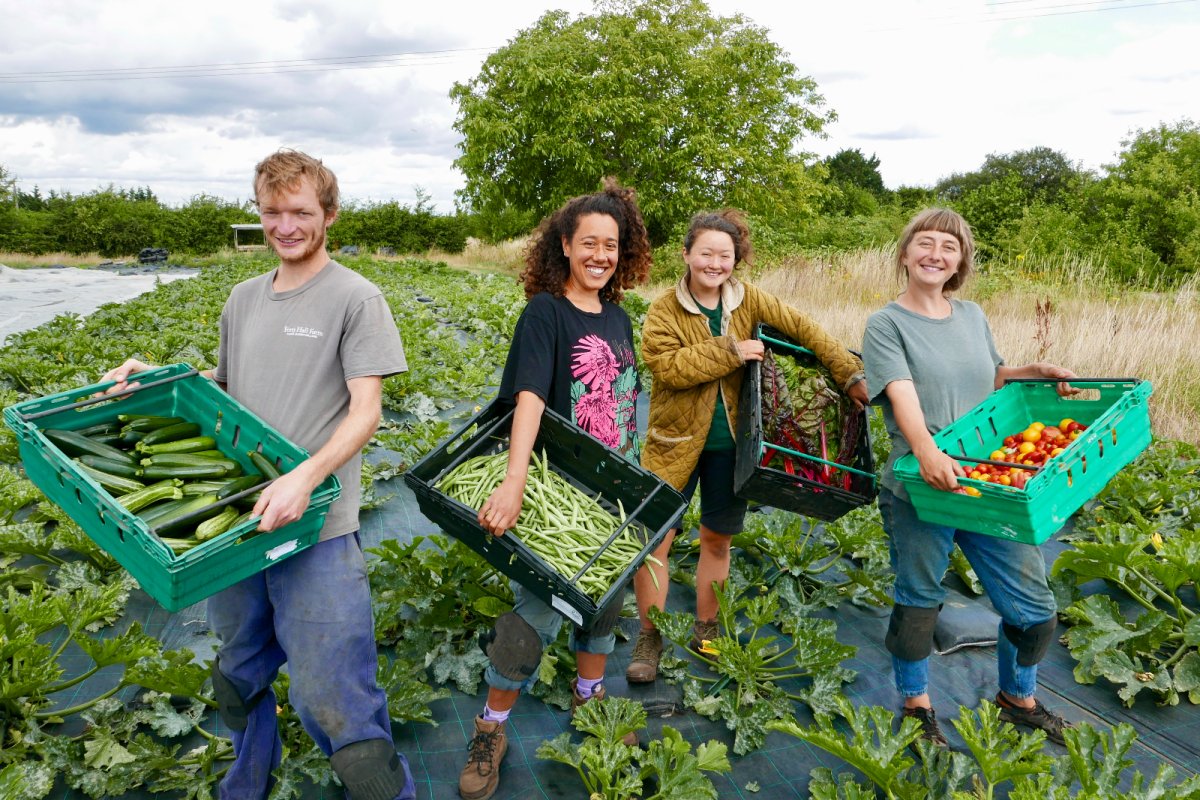
London’s Green Belt can help safeguard our food and climate
As food security becomes an increasing priority, Sustain proposes that the new London Plan should create an opportunity to reimagine green belts around cities as "food resilience zones" in it’s response to the Mayor of London’s Towards a New London Plan consultation.
As part of the preparation for the new London Plan, arguably one of the most controversial elements of the proposal are targets for building 880,000 new homes and a review of the green belt to accommodate this. Campaigners have suggested that this could drive further land speculation and land banking, increase the immense pressure from housing developers and risk more viable farmland being left idle or lost permanently.
In Sustain’s response to London’s planning consultation they highlight the huge opportunities presented, showing how the planning system and the Green Belt could contribute to health, resilience and the sustainability of London’s food system, while helping the Mayor achieve London’s climate and biodiversity targets. As food security becomes an increasing priority, Sustain suggests the Mayor of London regard green belts around cities as "food resilience zones" and ensure land is assessed for its capacity to produce food in planning decisions.
Rachel Dring, Capital Growth Coordinator at Sustain comments,
“We realise there will be difficult choices to make and competing demands for how we use land in a city like London, but we want a more progressive approach in the next London Plan. Sustain believes and has seen how we can create a multi-use approach, where land simultaneously provides healthy, planet friendly food, enhances wildlife, creates jobs and skills and create public amenity. Where additional housing is needed, access to healthy food, nature and green spaces should all be considered and designed in. And above all we need to see that London’s food security is prioritised, so we are prepared for shocks and challenges in the future. We outline how the London Plan can do all this in our response.”
The Mayor’s house building targets will also mean more high-density housing, which makes the need to integrate green space, food growing and community food infrastructure into developments ever more urgent, to ensure healthy, nature-rich, climate-resilient places to live. The new draft of the London Plan, due in 2026, presents an opportunity to address pressing concerns for London’s food security whilst also creating healthy food environments.
Sustain would also welcome a refresh of the London Food Strategy and implementation plan to be developed alongside the London Plan, which together would provide a framework that integrates spatial, infrastructure and policy both for business and community resilience and recognises the complexity, scale and impact of food systems on the UK’s largest urban population.
Read our response to Towards a London Plan
We welcome others to identify elements of our response which they support and to submit a response online by Sunday 22 June.
Capital Growth: Connecting a network of London growers.
Sustain
The Green House
244-254 Cambridge Heath Road
London E2 9DA
020 3559 6777
sustain@sustainweb.org
Sustain advocates food and agriculture policies and practices that enhance the health and welfare of people and animals, improve the working and living environment, promote equity and enrich society and culture.
© Sustain 2026
Registered charity (no. 1018643)
Data privacy & cookies
Icons by Icons8
